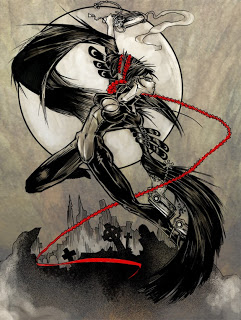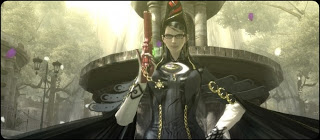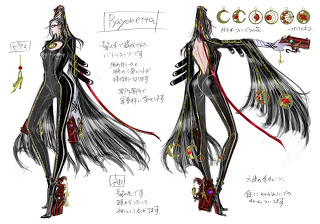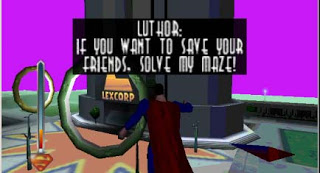This post has not been edited by the GamesBeat staff. Opinions by GamesBeat community writers do not necessarily reflect those of the staff.
 The war between publishers and retailers is a well-documented and yet strangely ironic struggle. Publishers love the fact that retailers sell their products, but they aren't keen on those very same retailers reselling games over and over. While the publisher gets paid once for the initial purchase, the retailer stands to profit repeatedly. It's no surprise that the conflict continues to this day.
The war between publishers and retailers is a well-documented and yet strangely ironic struggle. Publishers love the fact that retailers sell their products, but they aren't keen on those very same retailers reselling games over and over. While the publisher gets paid once for the initial purchase, the retailer stands to profit repeatedly. It's no surprise that the conflict continues to this day.
As I see it, two solutions exist to remedy this issue that is currently dividing the industry.
Electronic Arts is responsible for championing the first solution: online passes. Any title which employs this feature will ask players to insert a code before accessing the game's online portion. This code is free…but not without a catch. You have to buy a brand-new copy. In effect, the requirement of an online pass will increase the cost of a preowned game by a considerable margin. As a result, publishers will force retailers to cut their profit margins if they want to keep the price of a second-hand item below that of a new one.
The second solution involves a robust, replayable online element. The idea is simple: A fun multiplayer mode will keep people playing for the intervening months until the launch of the series' next game. The thinking here is sound, but the execution is more than often lacking. After all, a tacked-on multiplayer component is often worse than the absence of one. Developers invariably design the best multiplayer modes when they focus on this feature, and as such, a two-pronged approach is ill-advised with titles more designed for solo play.
These approaches are worth mentioning because their existence indicates how much publishers are worrying about the problem. Interestingly enough, Bayonetta seems to have found a solution to the dilemma in a way which is neither morally dubious nor costly. It simply involves some clever design.

Yesterday, I returned to Bayonetta. I consider this to be both one of last year's finest games and one of the best titles ever made. I go back to the action title because I haven't finished it. In fact, I've beaten Bayonetta's campaign three times. Boredom wasn't a factor either. Instead, I picked up Bayonetta because (even after 30 hours of logged play) new features, weapons, areas, and scenarios still remain hidden or unexplored.
While Bayonetta may be tough as nails on its two higher difficulty levels, it’s also incredibly replayable. I don't mean to say that it’s rewarding simply because it's difficult. Bayonetta also keeps you interested by doling out pretty sweet extras like new characters and weapons.
These items are certainly neat, but they would be worthless if you’d already seen everything the game had to offer. This is not the case. Bayonetta offers opportunities to use hard-earned unlocks in the form of side quests and narrative scenarios. It’s strange to think that this is a design choice that seems to have eluded other developers in the past. If you're lucky, you'd have a troupe of bodyguards by the end of Grand Theft Auto: Vice City. But with nothing more to challenge you, the entourage felt kind of pointless.
 It’s also very helpful that Platinum Games, the developers of Bayonetta, chose to put more effort into scaling difficulties instead of simply boosting the enemies' health. A higher difficulty setting in Bayonetta not only produces stronger enemies, but new ones altogether. Slow motion — a pivotal weapon in your arsenal — is completely absent on the Extreme mode.
It’s also very helpful that Platinum Games, the developers of Bayonetta, chose to put more effort into scaling difficulties instead of simply boosting the enemies' health. A higher difficulty setting in Bayonetta not only produces stronger enemies, but new ones altogether. Slow motion — a pivotal weapon in your arsenal — is completely absent on the Extreme mode.
Bayonetta does a few things wrong. It doesn’t indicate the locations of these highly desirable items very well. It offers no shimmers, faint outlines, or light sources to indicate the existence of these nifty collectibles. It would have been criminally easy for me to miss them entirely and retire Bayonetta to the shelf permanently. Some players may like keeping these sorts of rewards as a surprise, but I’d argue that 90% of the people who end up unlocking them will have seen them on the Internet first. Show me the item, tell me what it does, and then tell me how to get it, please. Get your marketing department involved if you have to, but make me want it!
As much as I’m picking up on these design choices, the simple truth might unfortunately be that I want to return to this one title over and over primarily because it’s good. Sure, it’s nice to know I’m working towards a great payoff, but in the end, I care about it because I love the core of the game.
So although I’d love to see unlocks dropped into everything this side of Tetris, it might be the case that in order to prevent people from trading in, developers just need to make better games. All the unlocks in the world wouldn’t stop you from trading in Superman 64, but then again, neither would online multiplayer. If you find a way of explaining all this to profit-obsessed executives though, then please get in contact with me.
Still, imagine Superman with a lightsaber, and tell me that wouldn’t be sweet.

